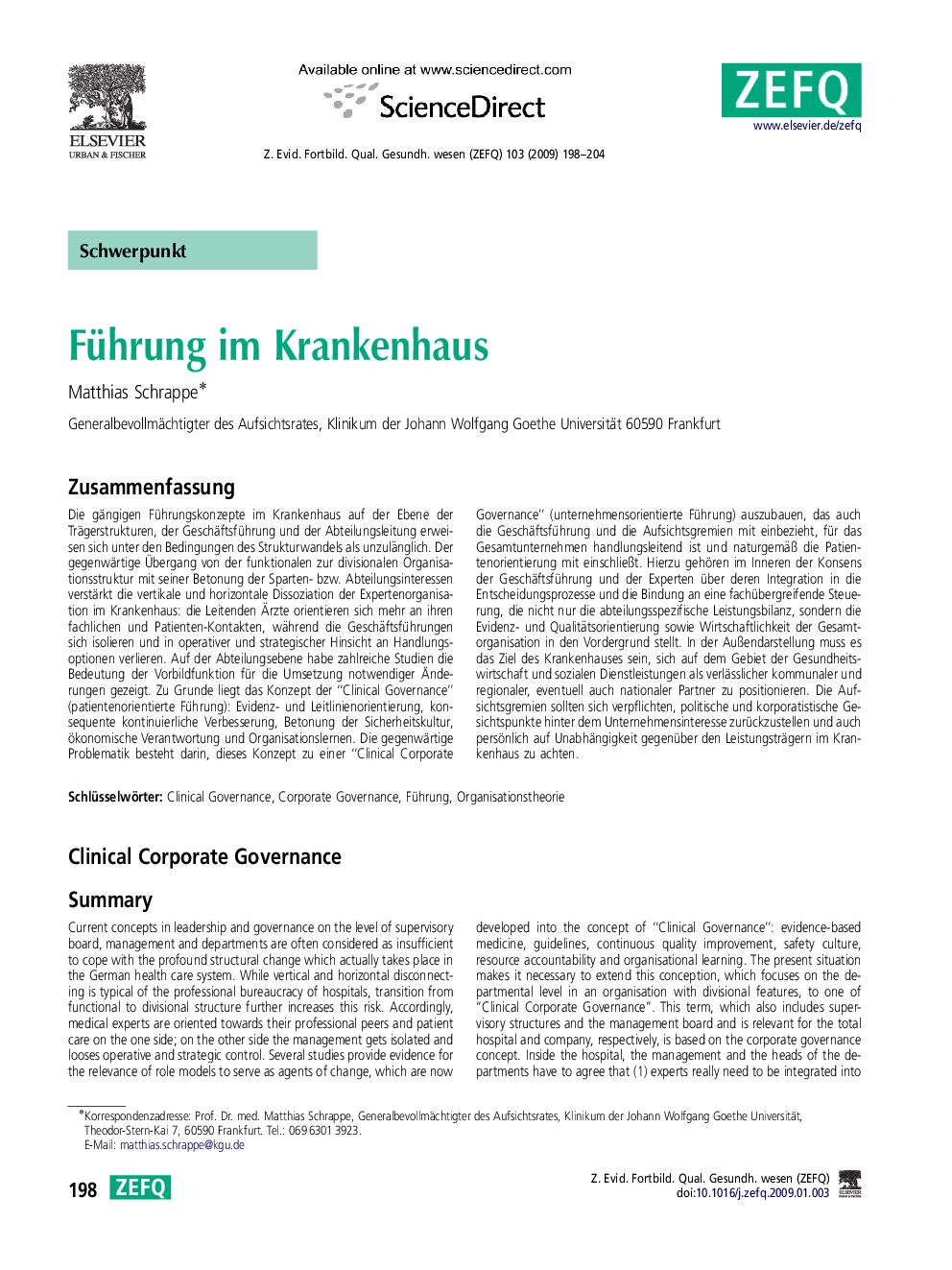| Article ID | Journal | Published Year | Pages | File Type |
|---|---|---|---|---|
| 1095077 | Zeitschrift für Evidenz, Fortbildung und Qualität im Gesundheitswesen | 2009 | 7 Pages |
Abstract
Current concepts in leadership and governance on the level of supervisory board, management and departments are often considered as insufficient to cope with the profound structural change which actually takes place in the German health care system. While vertical and horizontal disconnecting is typical of the professional bureaucracy of hospitals, transition from functional to divisional structure further increases this risk. Accordingly, medical experts are oriented towards their professional peers and patient care on the one side; on the other side the management gets isolated and looses operative and strategic control. Several studies provide evidence for the relevance of role models to serve as agents of change, which are now developed into the concept of “Clinical Governance”: evidence-based medicine, guidelines, continuous quality improvement, safety culture, resource accountability and organisational learning. The present situation makes it necessary to extend this conception, which focuses on the departmental level in an organisation with divisional features, to one of “Clinical Corporate Governance”. This term, which also includes supervisory structures and the management board and is relevant for the total hospital and company, respectively, is based on the corporate governance concept. Inside the hospital, the management and the heads of the departments have to agree that (1) experts really need to be integrated into the decision process, and that (2) the outcomes of the entire hospital have to be regarded as equal or superior to the aims of a single department. The public image of the hospital should be one of a strong and reliable partner in health care and health care business on a local, regional and national level. Members of the supervisory board should clearly put corporate aspects above political and other implications and pay attention to personal independence from the leaders of the medical departments.
Related Topics
Health Sciences
Medicine and Dentistry
Public Health and Health Policy
Authors
Matthias Schrappe,
